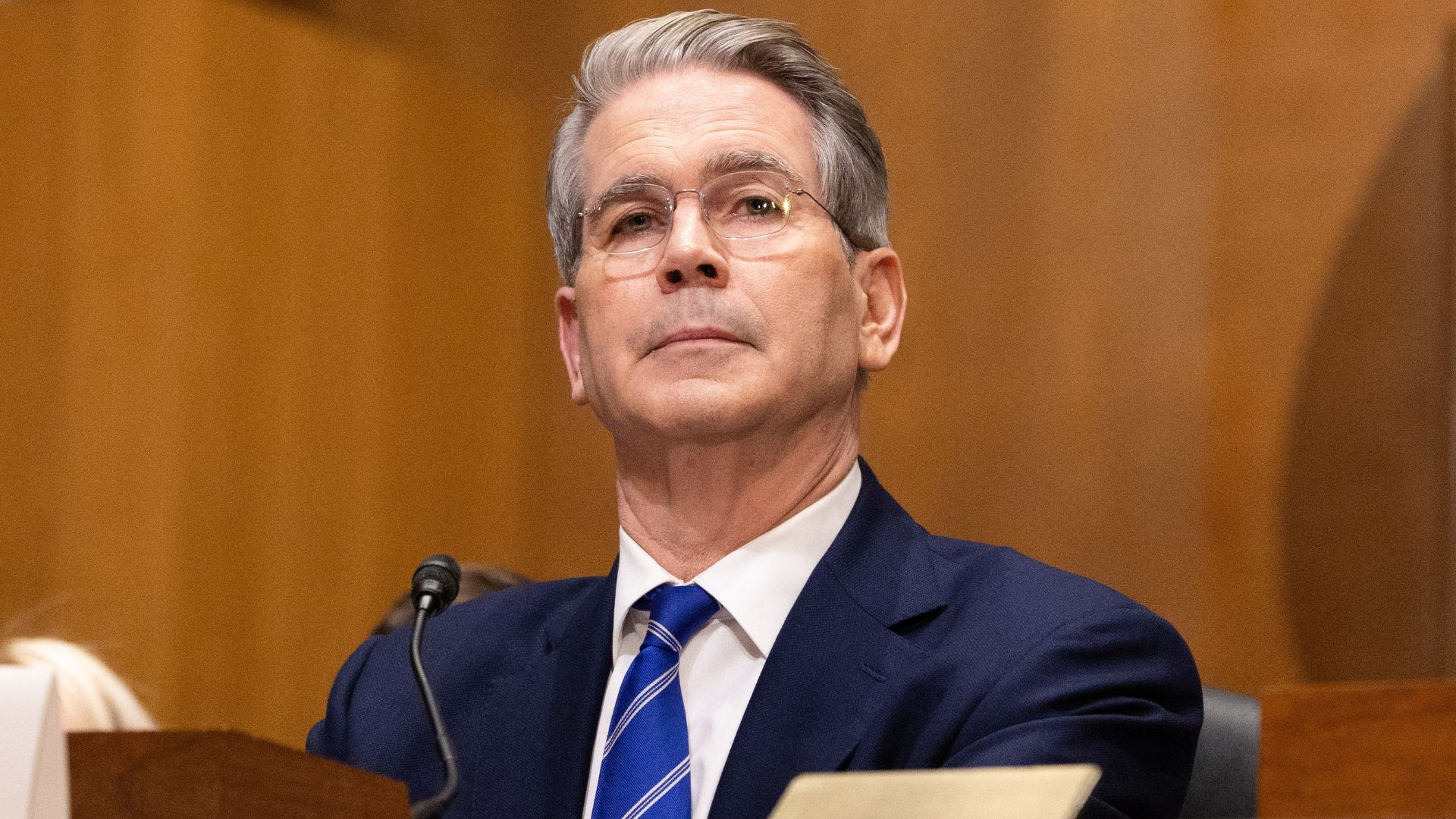**Treasury Secretary Scott Bessent Highlights Impact of Trump Administration’s Spending Cuts Amid Shutdown**
Treasury Secretary Scott Bessent stated on Sunday that the Trump administration’s reduction in government spending has largely gone unnoticed during the ongoing shutdown but has played a crucial role in helping the United States avoid a recession.
Speaking on CNN’s “State of the Union,” Bessent discussed the administration’s fiscal policies alongside the Federal Reserve’s recent interest rate cuts. The Federal Reserve announced on Wednesday that it would lower its benchmark interest rate by a quarter-point, bringing the range to between 3.75% and 4.00%.
During the interview, CNN host Jake Tapper asked Bessent whether the U.S. risked entering a recession if the Fed continued cutting rates too aggressively.
“I believe that we are in a transition period here as we are seeing the Trump administration has cut back on government spending,” Bessent explained. “What has gone unnoticed during the shutdown is, for the fiscal year that ended September 30, the government spent less than it did the year before. And because the GDP grew, the deficit-to-GDP—which had been 6.4%, 6.5% deficit, the highest when we weren’t at war and weren’t in a recession—was brought down to 5.9%.”
Bessent continued, “So we are bringing down government spending, and I would think that the Fed would want to assist with that. Because if we go back and look, MIT just published a study that said 42% of the great inflation of 2022 came from excess government spending. So if we are contracting spending, then I would think inflation would be dropping. [If] inflation is dropping, then the Fed should be cutting rates.”
—
### Major Spending Cuts Save Taxpayers Billions
The Trump administration began implementing major spending cuts earlier in 2025, targeting what officials described as “inefficient or duplicative” programs across multiple agencies. According to an October 4 update from the Department of Government Efficiency (DOGE), the administration’s cost-reduction initiatives saved an estimated $214 billion for taxpayers—roughly $1,329 per taxpayer.
These spending reductions coincided with a broader effort to rein in the federal deficit while addressing the shutdown’s fiscal impact. Administration officials have argued that reduced government outlays are helping stabilize inflation and ease pressure on working families, despite temporary disruptions caused by the shutdown.
—
### Federal Reserve Rate Cuts and Policy Tensions
Federal Reserve Chairman Jerome Powell had previously warned that continued rate cuts could increase inflationary risks if not balanced by sound fiscal management. However, tensions between Powell and President Donald Trump over rate policy have been ongoing for months.
Trump has repeatedly called for the central bank to lower rates more aggressively to support growth, arguing that high interest rates are hindering small business expansion and homeownership. Powell said earlier this year that the Fed would have cut rates sooner if not for the trade and tariff policies enacted by the administration.
The Fed’s first rate cut came on September 17, lowering the benchmark by a quarter-point to a range of 4.00% to 4.25%. A second cut followed in October, bringing the rate to its current level between 3.75% and 4.00%.
Because of the government shutdown, most federal economic data releases have been delayed, leaving analysts without recent updates on job growth, consumer spending, or inflation trends.
—
### Economic Outlook and Potential Risks
Tapper pressed Bessent on whether he believed the economy could slip into a broader recession if the Fed halts rate cuts.
“I think that we are in good shape, but I think that there are sectors of the economy that are in recession, and the Fed has caused a lot of distributional problems there with their policies,” Bessent said. “I wrote a 7,000-word essay on that. We’ve seen the biggest hindrance for housing here is our mortgage rates. So if the Fed brings down mortgage rates, then they can end this housing recession. Low-end consumers who have gotten killed under President Biden—these high rates are hurting them because they have debt, not assets. So I think that there are sections of the economy that could go into recession.”
Bessent reiterated his belief that the economy is in a “transition period,” contrasting his outlook with that of former Treasury Secretary Janet Yellen. Yellen, under the Biden-Harris administration, characterized inflation as “transitory,” a view later proven incorrect as consumer prices surged during her tenure.
Bessent clarified that his use of “transition” referred instead to a short-term shift in economic conditions as the administration reduces spending and stabilizes long-term growth.
—
*Watch the full interview on CNN’s “State of the Union.”*
https://www.lifezette.com/2025/11/scott-bessent-explains-the-big-picture-everyone-is-missing-during-the-shutdown-watch/
